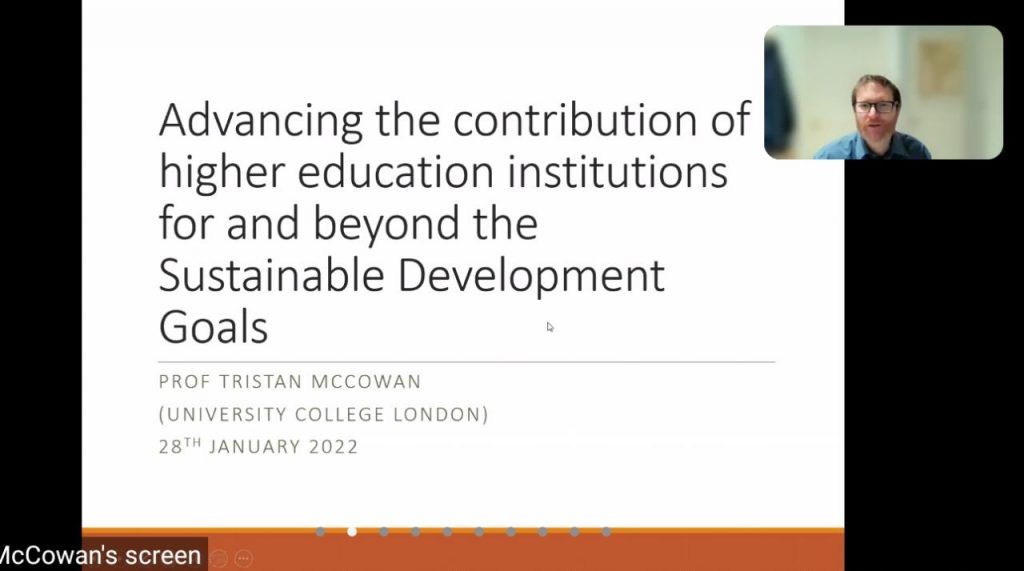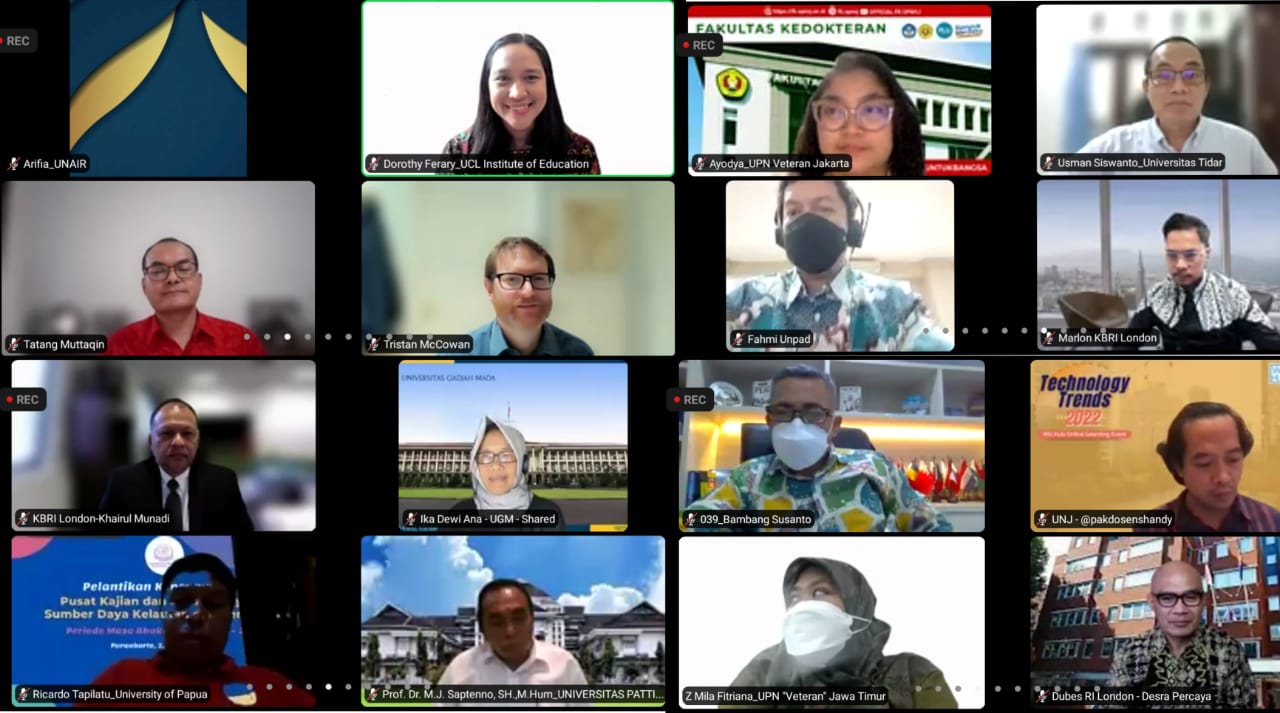UNAIR NEWS – Embassy of The Republic of Indonesia in London has invited Universitas Airlangga (UNAIR) to participate in a webinar, UK – Indonesia Knowledge Sharing. The event on Friday, January 28, 2022, was specifically held to encourage knowledge sharing in the development of universities between the United Kingdom and Indonesia.
In his speech, Ambassador Extraordinary and Plenipotentiary (LBPP) of the Republic of Indonesia to the United Kingdom, Ireland, and the International Maritime Organization, Dr. Desra Percaya, said the event was held to maximize the SDGs program. In 2022, Indonesia will enter the seventh year of implementing the SDGs.
“At this stage, a commitment to development transformation is needed. In this case, educational institutions through Higher Education Tri Dharma are important actors with the resources and knowledge that need to be mobilize continuously,” explained the FISIP UNAIR alumnus.
Therefore, the webinar was held to be a space for improving capacity of universities between two countries. During the main session, a Professor from the University College London (UCL) Institute of Education (IoE), Prof. Tristan McCowan, shared a strategy of implementing the SDGs at the university level.
His presentation was titled Advancing The Contribution of Higher Education Institutions for and Beyond SDGs. Prof. Tristan stated that the culture of college research plays an important role. For example, in a pandemic situation, universities proved to be one of the institutions contributing to developing medicine up to the Covid-19 vaccine.
“The same thing we can also do in the issue of SDGs. There are at least five modalities owned by universities in the SDGs,” explained the professor who is active in research related to the SDGs.
The modalities include education, knowledge production, service delivery, public debate, and campus operations. They must interact and collaborate with various parties across various sectors such as organizations, alumni, governments, and communities.
Also Read: UNAIR strengthens research and academic collaboration with the French Embassy
Furthermore, universities must also show their modalities in the community, both in economic, political, and cultural aspects. Finally, Prof. Tristan also highlighted that the university modalities could impact climate change and environmental issues that have been part of the pillars of the SDGs.

4 university steps
In addition, Prof. Tristan also revealed that there are four other steps that universities must take. The first is research that focuses on finding new solutions and knowledge related to the SDGs. Second, responsible for consumption patterns and sustainability. Third, work directly with communities, regions, and governments. Fourth, build a sustainability mindset in students and alumni in the teaching process.
After the presentation, the discussion session was presented with some panellist and guests. The Director of Higher Education and Science and Technology was present in the session. Tatang Muttaqin, S.Sos., M.Ed., Ph.D. and UGM’s Vice-Rector for Research and Community Service drg. Ika Dewi Ana M.Kes. Ph.D.
Together with 100 other participants, constructive discussions succeeded in opening a dialogue on the maximization of the SDGs between the two countries. The event was held through Zoom Meeting and attended by representatives from Indonesian and British universities. (*)
Author: Intang Arifia
Editor: Binti Q. Masruroh





